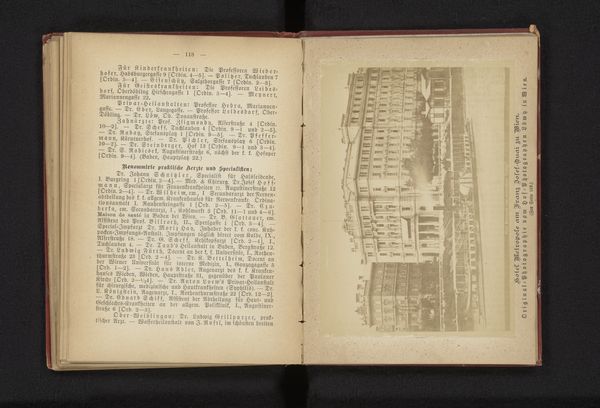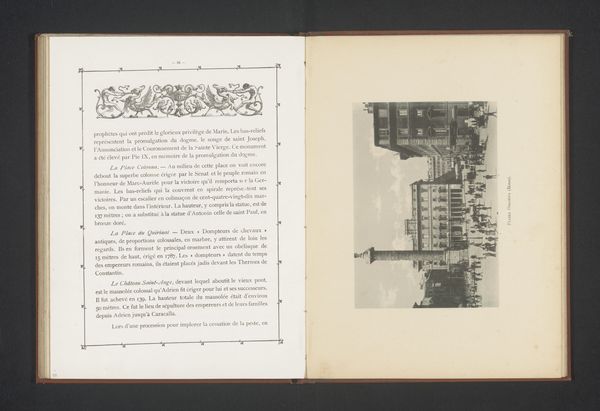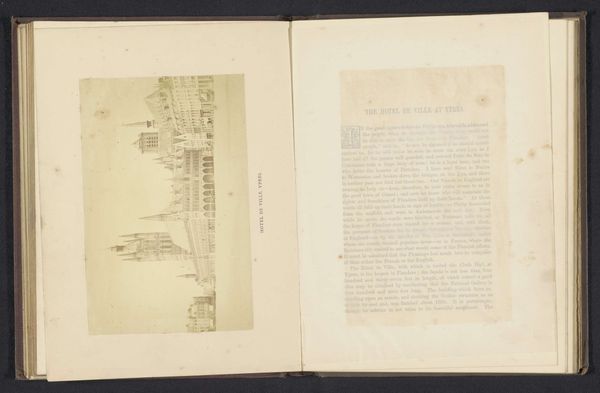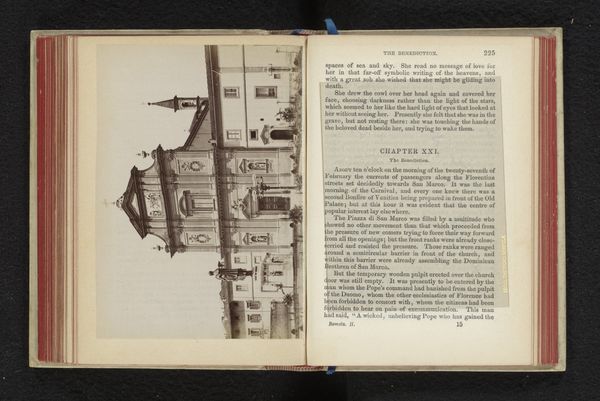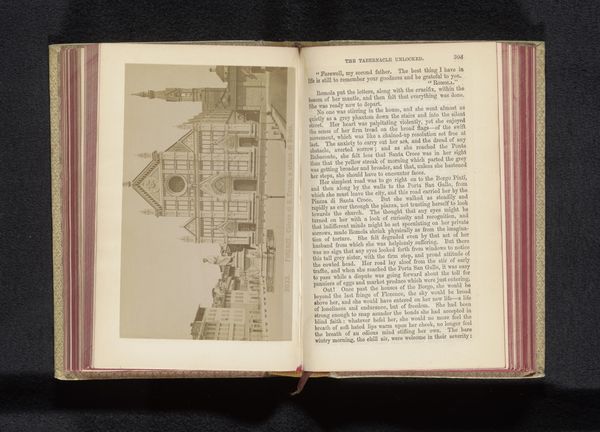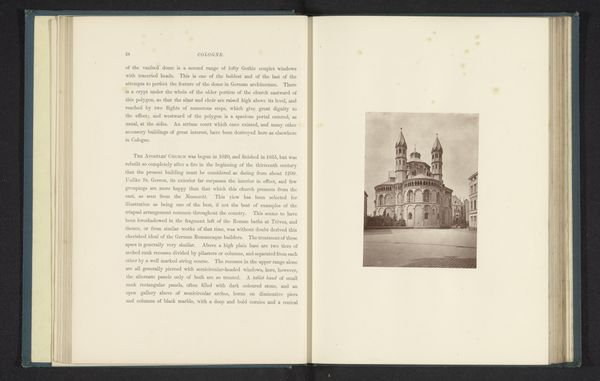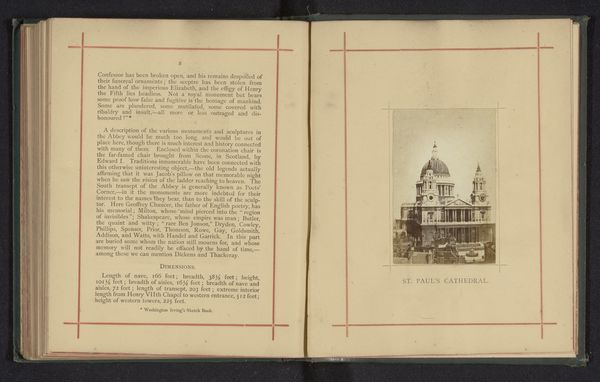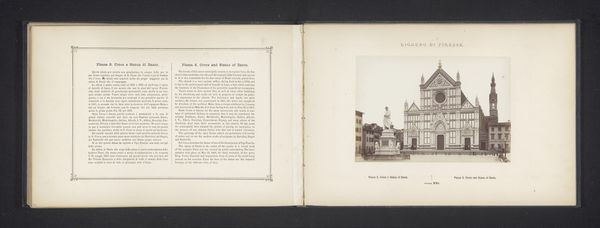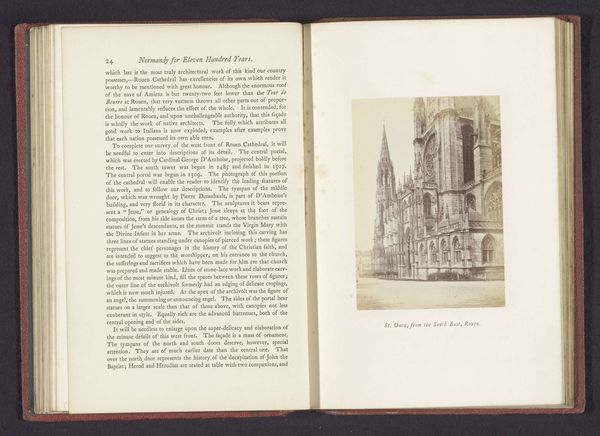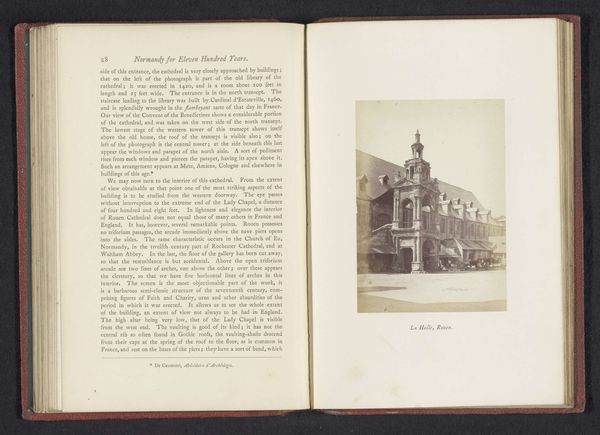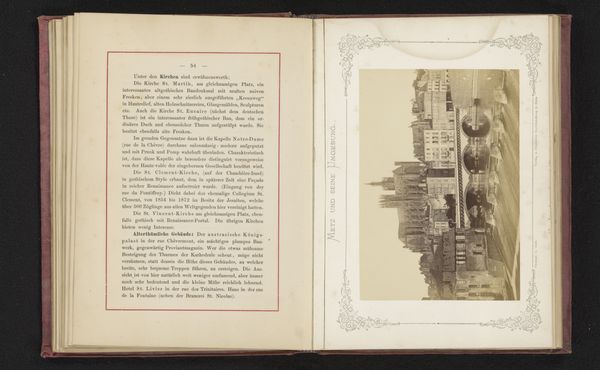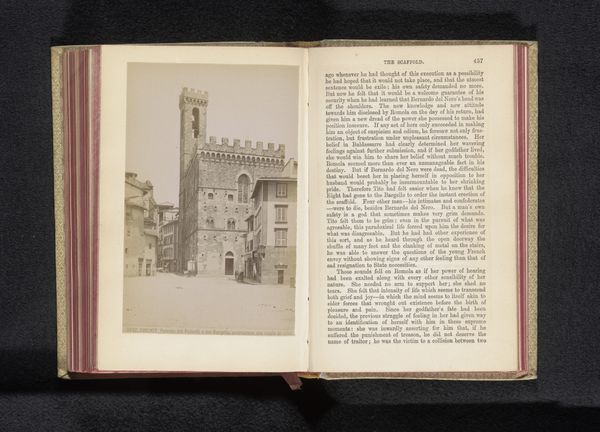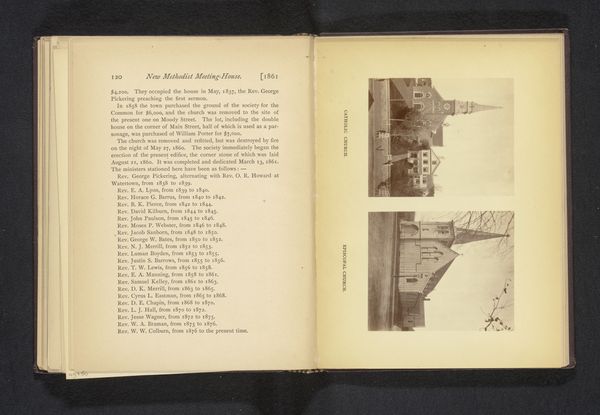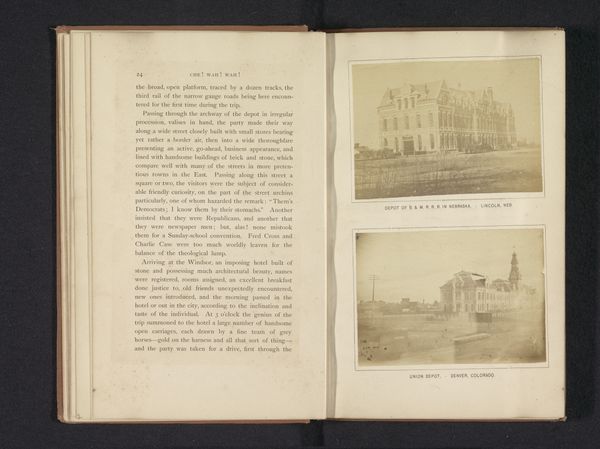
print, photography, gelatin-silver-print
# print
#
photography
#
ancient-mediterranean
#
gelatin-silver-print
#
cityscape
#
italian-renaissance
Dimensions: height 100 mm, width 136 mm
Copyright: Rijks Museum: Open Domain
Editor: This is “Palazzo Vecchio in Florence,” a gelatin-silver print from before 1863 by Giacomo Brogi. It appears here as an image in an opened book, and the building looms—its monumentality striking even in this small format. The cityscape almost feels imposing. What stands out to you when you look at it? Curator: It's interesting how Brogi, working in a relatively new medium, is already documenting and framing power. Look at the production of this image: the silver, the gelatin—materials tied to industry and the ability to reproduce and disseminate images widely. He’s using a modern process to capture an emblem of Renaissance authority. Editor: So the choice of photography itself becomes part of the story? Curator: Precisely! It speaks to a shift in how power is not only constructed but also *consumed*. Consider the social context. Photography made images like these accessible to a broader audience beyond the elite, creating a different relationship to cultural heritage. It's no longer just about the stone and the aristocratic lineages. What do you make of that? Editor: That makes me consider the labor behind the construction of the Palazzo and how it contrasts with the industrialized photographic process. One evokes centuries of artisanal skill; the other suggests a rapidly changing mode of production. Curator: Exactly! And think about who had access to Brogi's photographs. It's likely tourists, a rising middle class consuming "snapshots" of the past, fueling an entire economy around cultural consumption. Editor: I never considered how deeply entwined materials and the mode of production were to experiencing and understanding art, particularly something historical like the Palazzo Vecchio. Curator: Seeing art this way can bring attention to these overlooked materials and techniques. By looking closely at the "how," we can uncover richer stories than just "who" or "when."
Comments
No comments
Be the first to comment and join the conversation on the ultimate creative platform.
